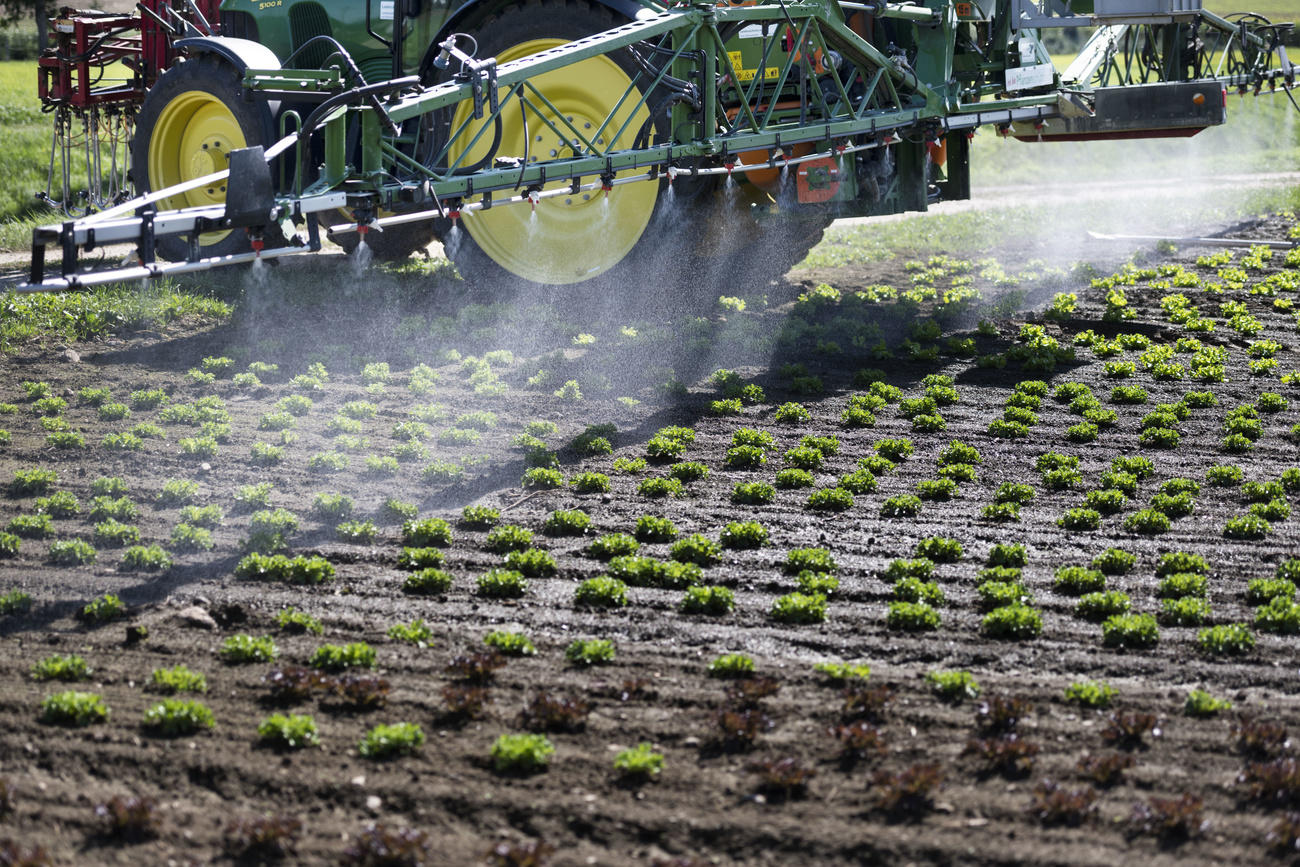
Banned pesticide found in Swiss drinking water

Drinking water in at least a third of Switzerland’s 26 cantons, mostly in the central part of the country, contains above-recommended levels of the banned pesticide chlorothalonil.
Since the beginning of the year, chlorothalonil, a fungicide widely used since the 1970s to prevent mildew and mould on crops, has been banned in Switzerland over health and environmental concerns.
On Wednesday, Swiss public radio, SRF, reportedExternal link that chlorothalonil by-products had been detected in groundwater at levels above legal standards set for drinking water in 12 Swiss cantons, mostly in the central plateau region. The data originated from the Federal Office for the Environment.
The office said chlorothalonil levels in drinking water exceeded approved levels by a factor of ten “in certain locations”. The agriculture office has set a maximum legal value for chlorothalonil by-products in drinking water of 0.1 micrograms per litre.
Alda Breitenmoser, head of the Aargau office for consumer protection, told SRF that there was no immediate danger to the public. However, the longer-term consequences of chlorothalonil remain unclear.
The Federal Office for Agriculture withdrew the sales authorisation for products containing chlorothalonil last December after an ongoing review of 100 substances. New laboratory results from firms indicated the toxicity of certain chlorothalonil by-products.
The agriculture office says “it is not possible to exclude that some chlorothalonil by-products do not have a long-term negative effect on health”. The office supports the European Union’s assessment that chlorothalonil should be classified as a carcinogen.
According to the World Health Organization (WHO), chlorothalonil is especially toxic to fish and aquatic invertebrates. Exposure to the agent can cause kidney and stomach damage, including tumours, in rodents. A ban on the substance will take effect in the EU in 2020, following conclusions from the European Food Safety Authority that the agent could pose a health risk.
Used since 1970s
Chlorothalonil has been used by Swiss farmers since the 1970s to help grow potatoes, cereals and vegetables. However, pesticides can seep into groundwater and drinking water.
According to the Federal Food Safety and Veterinary Office, a total of 2,025 tonnes of pesticides were reported in Switzerland in 2017. Of these, 2%, or 45 tonnes, contained the active ingredient chlorothalonil.
Last June drinking water in a village in canton Fribourg had to be cut after excessive amounts of chlorothalonil were discovered.
The government is taking measures against contaminated drinking water with its action plan to reduce pesticide pollution and the Agricultural Policy 22+, but critics say these do not go far enough. Two popular initiatives on drinking water are pending. Although the government has rejected these, voters are likely to have the final say this year.

More
Swiss ban widely-used pesticide over health and environment fears

In compliance with the JTI standards
More: SWI swissinfo.ch certified by the Journalism Trust Initiative

























You can find an overview of ongoing debates with our journalists here . Please join us!
If you want to start a conversation about a topic raised in this article or want to report factual errors, email us at english@swissinfo.ch.